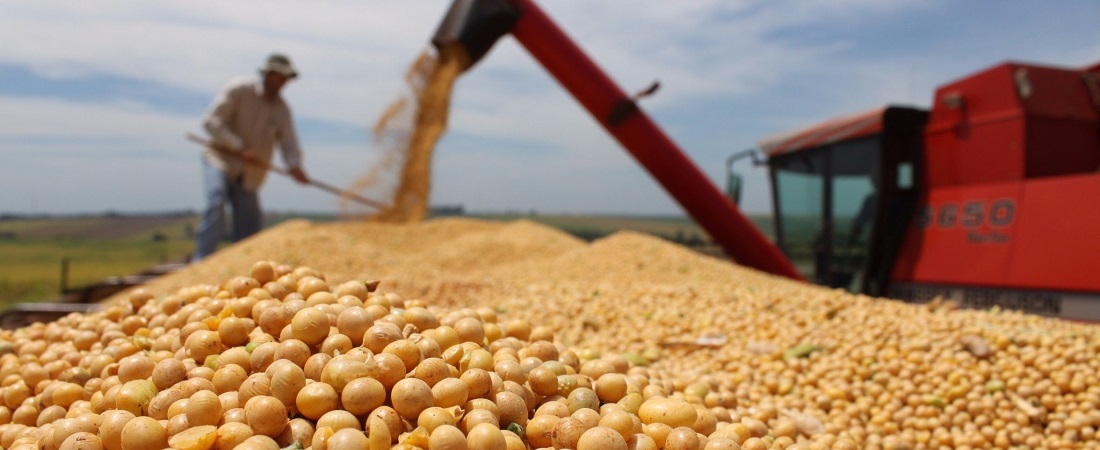
Legal Battle Erupts Over New Grain Export Levy in Maranhão
Feb, 28, 2025 Posted by Gabriel MalheirosWeek 202509
A newly imposed levy by the Maranhão state government on soybean, corn, millet, and sorghum exports has sparked a legal battle between producers, agribusiness giants, and the state government, raising concerns that similar charges could spread to other states.
The Maranhão Soybean and Corn Producers Association (Aprosoja MA), the Brazilian Association of Vegetable Oil Industries (Abiove), and agribusiness firms Amaggi, Louis Dreyfus Company (LDC), and ALZ Grãos have filed three lawsuits in Maranhão courts to block the Special Grain Contribution (CEG)—a 1.8% levy on grain shipments passing through the state for export. The tax took effect on February 24.
Aprosoja MA has filed a class-action lawsuit seeking an injunction to overturn the law establishing the CEG, arguing that taxing exports is unconstitutional. José Carlos Oliveira de Paula, president of Aprosoja MA, warned that the levy would cause losses of 12% to 15% for producers. “This is a huge financial hit that will ultimately affect planting decisions and investments in the next harvest,” he said. The association estimates the CEG could cost producers up to R$ 269 million annually.
On February 27, Judge Sara Fernanda Gama of the 6th Public Treasury Court in São Luís transferred the case to the 2nd Public Treasury Court, where two similar lawsuits are already underway.
One of those cases is a class-action injunction filed by Abiove seeking to overturn the CEG. However, on February 25, Judge Osmar Gomes dos Santos denied the request, ruling that the levy does not directly tax exports but rather applies to domestic production, storage, and transportation of grains within Maranhão. Abiove President André Nassar criticized the decision, calling it “absurd” and confirming that the association will appeal.
Another lawsuit—a preventive injunction—was filed by Amaggi, LDC, and ALZ Grãos, which operates the Maranhão Grain Terminal (Tegram). The companies raised the same legal argument. However, Judge Osmar Gomes dos Santos dismissed the case, ruling that a writ of mandamus was not the appropriate legal tool for the dispute. The companies have already appealed.
State Government Defends Tax, Industry Fears Expansion to Other States
Maranhão’s state finance department defended the levy, arguing that the CEG is legally supported by Article 136 of the Transitional Constitutional Provisions Act (ADCT), introduced as part of Brazil’s tax reform. The department stated that revenues from the levy will fund the Maranhão Industrial Development Fund (FDI) and state road infrastructure. “Therefore, the agribusiness sector itself is expected to benefit from the measure,” the government said.
However, industry groups and agribusiness firms dispute this interpretation, arguing that Article 136 only allows states to impose similar levies if they had already been collecting a comparable tax to defer ICMS in 2023—which was not the case for Maranhão.
Sources close to the matter warn that the biggest concern is that other states may follow Maranhão’s lead. In late 2024, the state of Pará passed a similar grain levy, only to repeal it after strong pushback from the agribusiness sector.
The new levy has also raised concerns within the logistics sector, which relies heavily on grain shipments.
“The main issue is the increased costs, which will impact rail transport,” said Davi Barreto, president of the National Association of Railway Transporters (ANTF). “Another concern is that state-level taxes on commodities disrupt cargo flows, distort supply chains, and create inefficiencies in the transportation system.”
ANTF is currently reviewing possible legal and regulatory measures to prevent further disruptions.
Source: Globo Rural
-
Other Cargo
Mar, 13, 2023
0
Textile industry records USD 1.14 bn in exports last year
-
Shipping
Dec, 22, 2023
0
Ships rerouted by Red Sea crisis face overwhelmed African ports
-
Ports and Terminals
Jan, 29, 2025
0
Port of Rio de Janeiro Resumes Bulk Salt Unloading
-
Meat
Aug, 24, 2022
0
Brazil’s Aurora successfully ships 1st pork container to Canada



